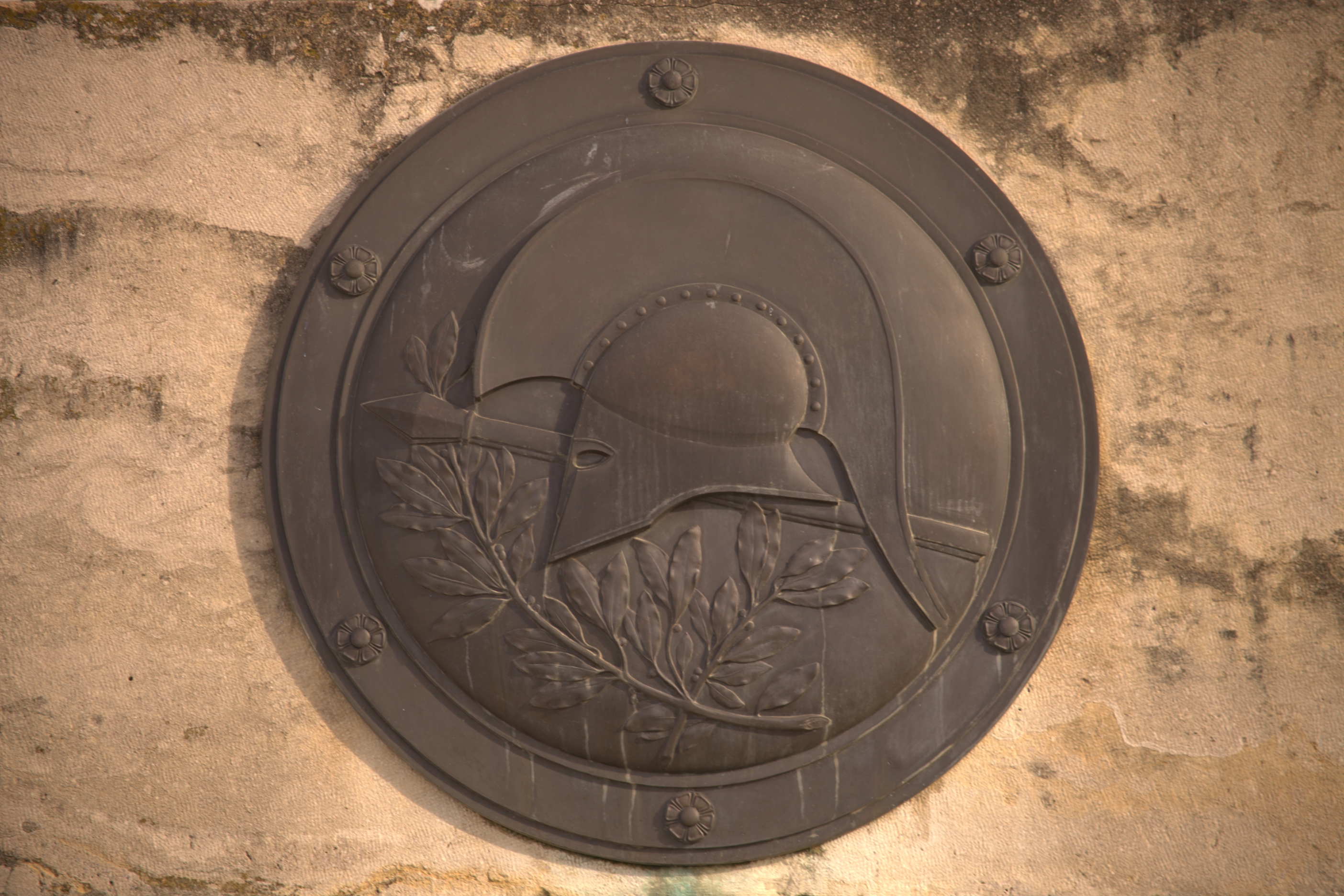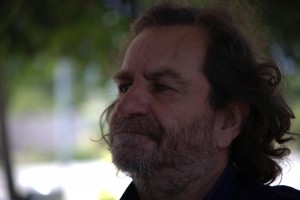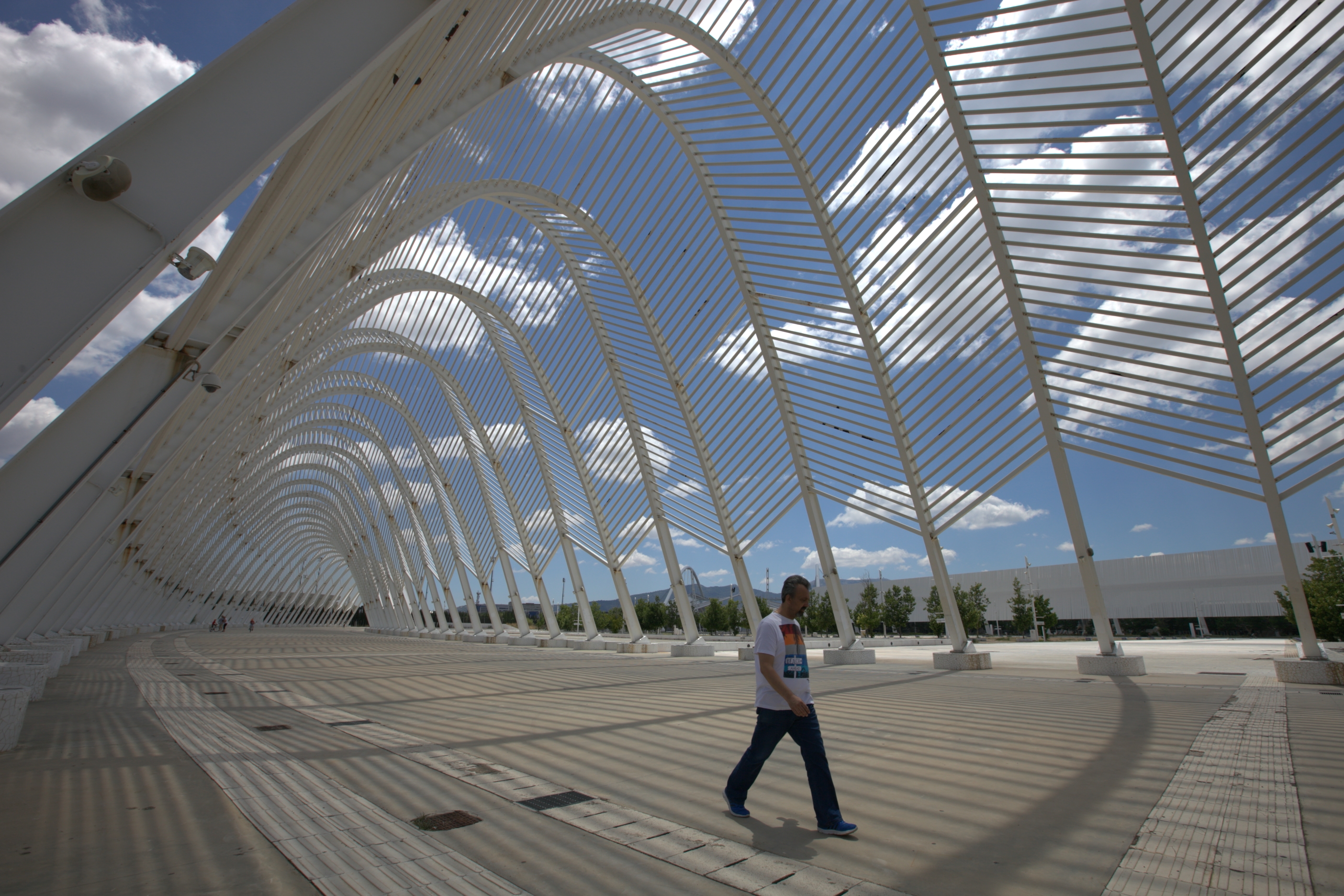Hosting the 2004 Olympics contributed to the debt that Greece is now struggling to pay off and left empty stadiums and other facilities behind. Some 8,000 people live in the Olympikia Chorio, the village built to house the athletes and support teams who competed. But the people who live in the athletes’ quarters today face a different, more painful struggle. And none of them will win a gold medal.
By Jan van der Made in Athens
The Olympic Village is a 15-minute drive from the Kifissia metro station, the terminus of line 1 that passes the Olympic complex at Irini, with its gigantic stadiums that now lie desolate and deserted in the midsummer sun.
After a tour past villas hidden behind lush green hedges in one of the richest neighbourhoods of Greece, the Olympic Village looks neglected and empty. The village was by far the largest of all constructions of the 2004 Olympic Games and consists of 366 blocks with a total of 2,292 apartments that were used for a period of only three weeks by the athletes and their support teams.
The project was carried out in close cooperation with the Workers’ Housing Organisation (OEK) the only social housing corporation in Greece.

The idea was to turn the Olympic Village in the biggest social housing development in Greek history. Going through the streets today, one sees desolate rows of two and three-storey houses with gardens – some well-kept but many neglected. There is a local hospital but it is closed. Two large office buildings have some of their windows broken and don’t seem to be used.
“In the beginning there was just barren land,” says Alexander, a local driver. Then suddenly everybody wanted to get involved.” Project developers, suppliers and workers streamed to the venue to take a share in the development flurry. It took two years to finish the project that included all the advantages of a modern village, such as roads, sewage, water supply, electricity and public transport.
When the athletes left, the OEK stepped in and through a lottery system, eligible people who had social or physical problems, were supplied with free or heavily subsidised housing. According to the British Housing association East Thames Group, that has researched what happened to Olympic athletes’ villages when they were vacated after the Barcelona and Athens Games, the venue was mired in controversy from the outset.
“Chosen was an area of degraded, polluted, minimally inhabited wasteland on the city’s far n orthern outskirts,” says the report. “New legislation permitted rapid compulsory purchase of the land but the village was built using old, environmentally unfriendly technology.” The report cites misuse of funds and slow decision-making, but by 2006 some 90 per cent of the houses were allotted to people with extreme economic or physical problems.
orthern outskirts,” says the report. “New legislation permitted rapid compulsory purchase of the land but the village was built using old, environmentally unfriendly technology.” The report cites misuse of funds and slow decision-making, but by 2006 some 90 per cent of the houses were allotted to people with extreme economic or physical problems.
Christos Drosos, Andreas Dimou and Birkos Dimitris are three elderly inhabitants who enjoy a glass at the only bar in the Olympic Village. They were among the lucky people who won the lottery for a better life. “I did not choose to come here,” says Drosos. “I applied for social housing and this is what I got.” Drosos likes living in the Olympic village but the crisis makes it almost impossible to go on. There were 32 shops here. Now there are only four.”
Taxes of up to 12,000 euros per month for medium-sized shops forced shop owners to raise prices. The customers couldn’t pay for the products any more and many shops were forced to close down. Shopkeepers in the Olympic Village are feeling the effects of the economic crisis. “There’s no money in the banks, so the people are very afraid,” says George, who works in one of the remaining four shops. On the referendum, he is sceptical: “Whatever the outcome, we can not just start over from Monday,” he says.
It will be a long time before Greece is back on its economic feet, George thinks, but he says it is Athens that is to blame. “The European Union does what it has to do. Greece did not take any initiatives on its own. I don’t care about [former prime minister Antonis] Samaras or [current PM Alexis] Tsipras, they are pawns and they do whatever Europeans tell them to do. We should develop our own thinking and act,” he says.
According to a publication of the Olympic Village Citizens’ Committee, more than 60 per cent of the people here are unemployed. Dimitris, one of the three elderly men, is out of work and he looks worried. “I used to work in shipbuilding, helping out at the marina,” but after loosing his job, he found that he had no pension. As he is also single, he is dependent on the goodwill of others. “I go to the church. They help with food,” he explains.
The men feel betrayed by their previous governments and by the European Union. “I hope Tsipras will kick them all,” remarks one of them, inviting laughter and toasts. Drosos went to the Tsipras rally on Friday where the Syriza leader called for a No vote in Sunday’s referendum and spoke about “continuing to live in Europe with dignity”. “There was a sense of unity,” he comments. “We want to work together, but we don’t want to give away everything we have. When I left the square, I was emotional.”
The original cost of the 2004 Olympic Games of three billion euros was tripled due to bad planning, overspending and, possibly, corruption. “According to me, the reason that Greece is currently in this shape is rooted in the fact that we organised the Olympic Games,” says Alexander, the driver. “Among other things,” he adds.
